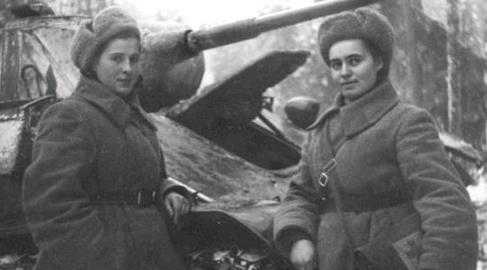During World War II, more than 27 million people died in the Soviet Union, about half of them soldiers. Both before and after the Battle of Stalingrad, the Soviet army lost much more than the German army. There were two main reasons for the large number of Casualties in the Soviet Army, on the one hand, the combat effectiveness of Soviet soldiers was not as good as that of the German Army, and on the other hand, the commanders of the Soviet Army lacked the art of command. German soldiers were well-trained and disciplined, while the Soviets lost more people on the battlefield, and many soldiers were incorporated into combat units after only simple training, which led to the individual combat effectiveness of Soviet soldiers being inferior to that of the German army.

Soviet commanders and fighters generally lacked the art of command, and even Zhukov, the first general of the Soviet Union, fought "fierce victories" in battles. In most of the battles Zhukov commanded, the Soviet army outnumbered the Germans, but at the end of the campaign, the Soviets lost more than the Germans. Even in the final stages of World War II, When Germany was at the end of its mighty arsenal, Soviet troops still suffered more losses on the battlefield than germans. Zhukov's Battle of Berlin was the final battle between the Soviet Union and Germany, and the Soviet Union concentrated more than 2 million troops to besiege Berlin, which was only defended by hundreds of thousands of troops, and the Result was that the Soviet army still suffered 350,000 casualties.
However, the strong regeneration ability of the Soviet army made the Germans very helpless. At the end of World War II, the number of Soviet troops exceeded 12 million, and with the addition of more than 10 million soldiers lost by the Soviet Union on the battlefield, the total number of soldiers in the Soviet Union throughout world war II was not less than 20 million. The Soviet Union was able to supply a steady stream of troops for two main reasons, on the one hand, because of the large population of the Soviet Union, and on the other hand, because of the strong production capacity of the Soviet Union.
The Soviet Union had a population of 196 million before the outbreak of World War II, three times the size of Germany and three times the number of reserve soldiers. Moreover, the production capacity of the Soviet Union is very strong, the supply of weapons and equipment is continuous, and fighting a war depends not only on the number of people, but also on the quantity and quality of equipment. Before the Battle of Moscow, the Soviet Union lost millions of weapons and equipment that could easily equip a military power.
However, after the loss of these equipment, the Soviet Union did not break the bones, the Soviet Union soon built more equipment, and the level of equipment of the army was higher than before the war. Soviet arsenals continued to produce equipment, soldiers were constantly sent to the battlefield, and since the Soviet Union's production capacity and population were far superior to Germany's, even if the Soviet Union's losses on the battlefield were more serious, it could be quickly replenished. The impact of Germany's loss of one soldier exceeded that of the Soviet Union's loss of two soldiers, so the Soviet Union, although it suffered heavy losses, was finally able to defeat Germany.